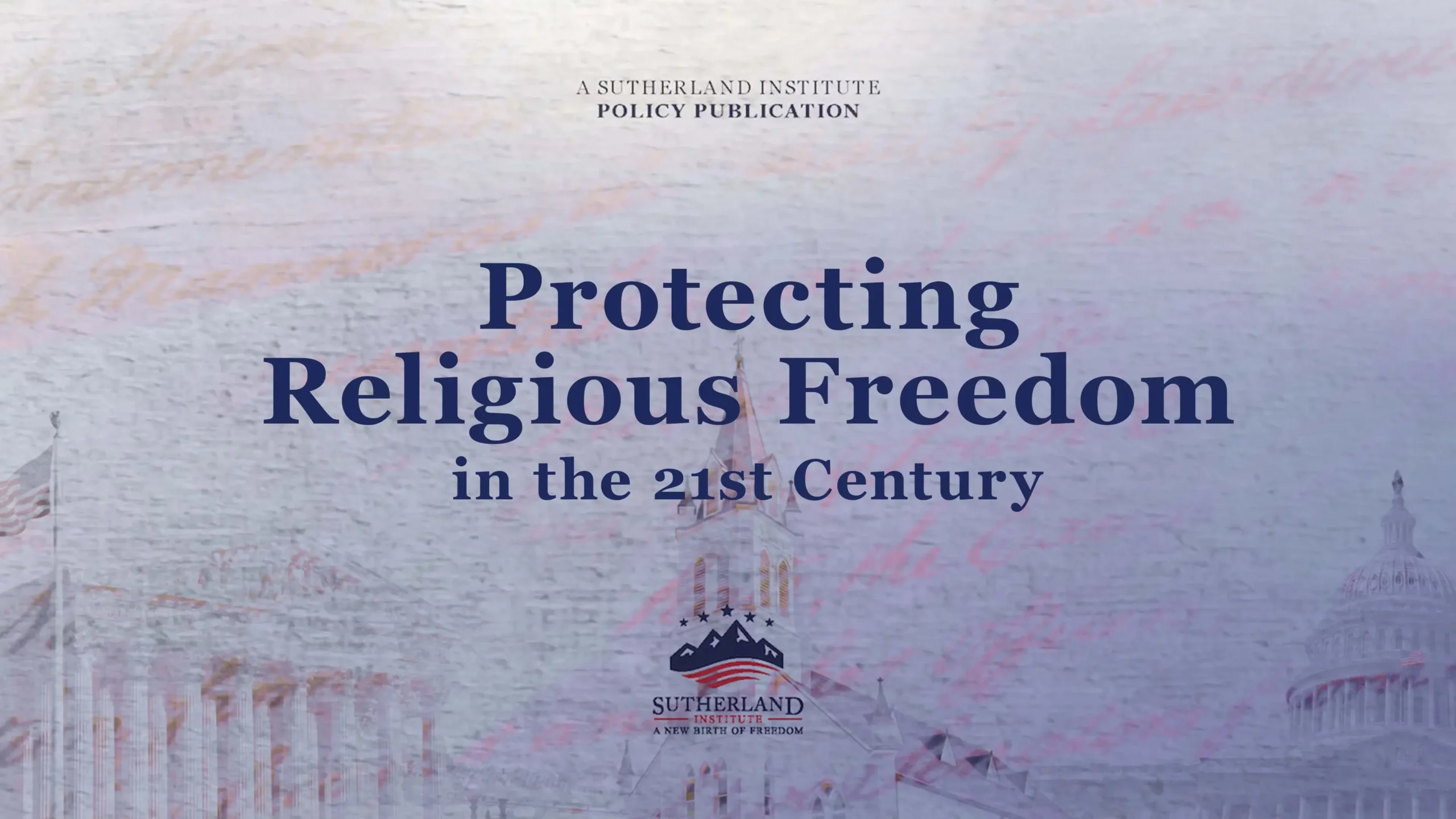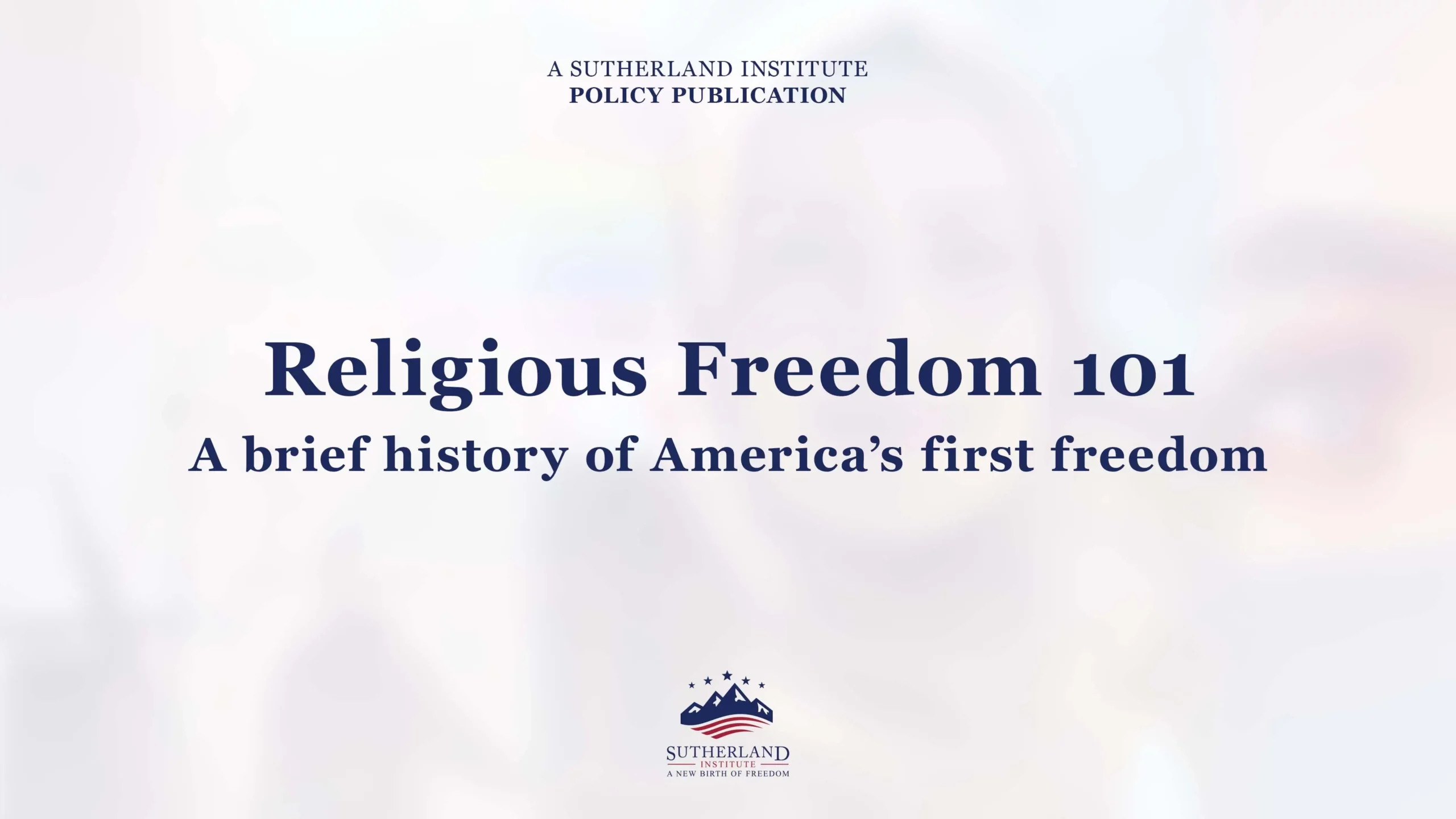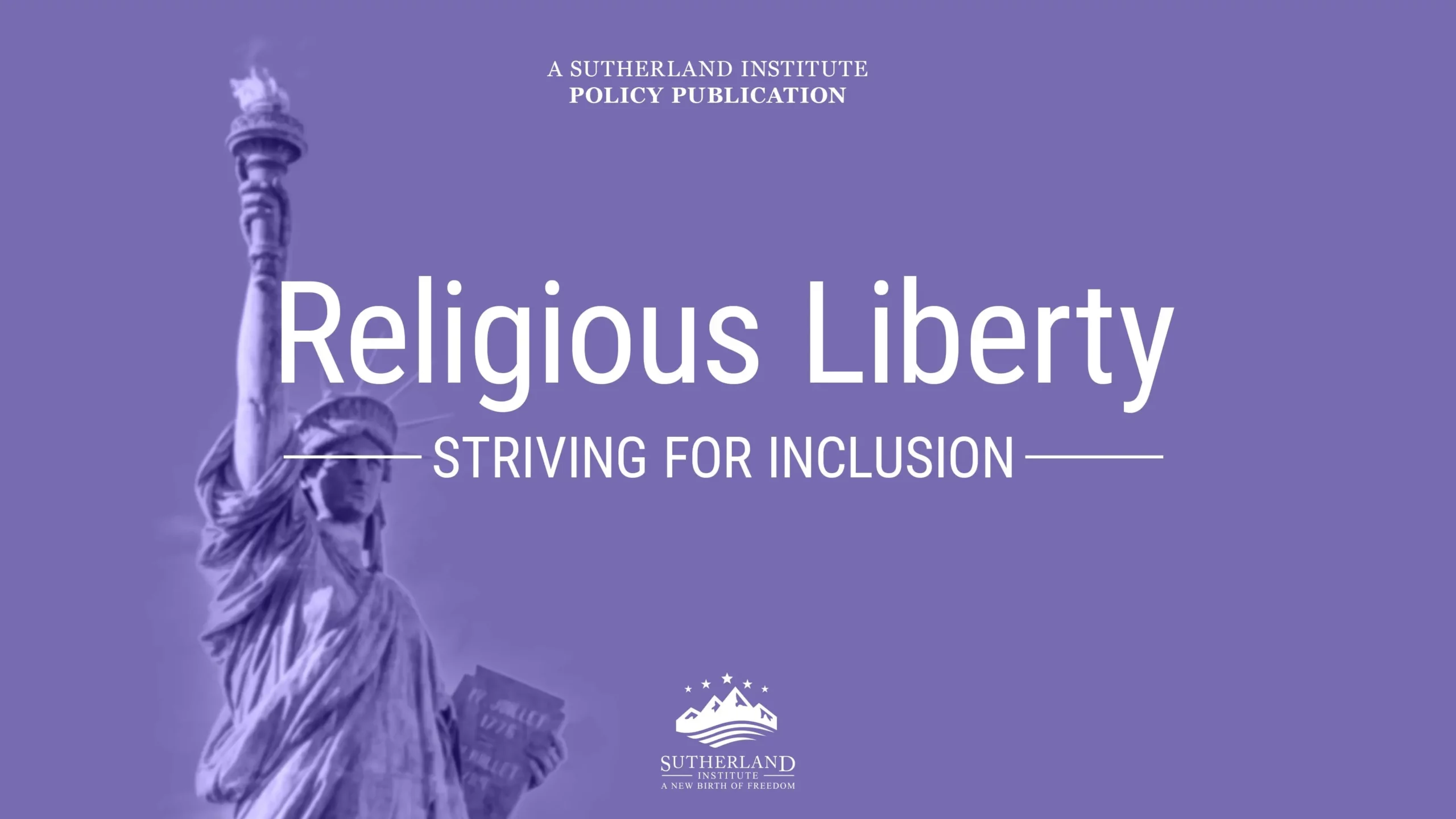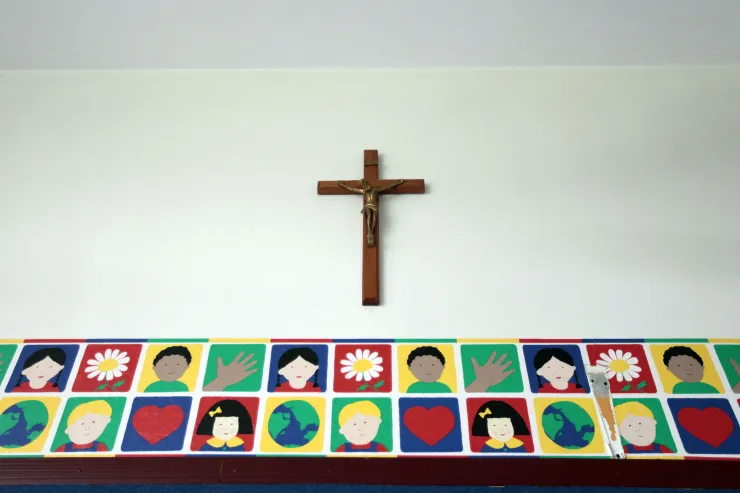Policy
Religious Freedom
Respecting human dignity requires that we respect the core elements of how people and groups identify themselves, including their religious beliefs. Religious belief has been a powerful motivation for protecting the rights and liberties of others; it kindled movements to abolish slavery and protect Americans’ civil rights. For millions of Americans, religion is the source of the values required in a free society, such as understanding, respect and sacrifice for others. Additionally, religious institutions provide irreplaceable care for the most vulnerable people in society.
For all of these reasons, the right to exercise religion is a fundamental human right. The law should respect the independence of religious institutions, defend the right of conscience, and protect the right of individuals to act on their religious beliefs, while establishing reasonable protections for public health and safety in a spirit of fairness for all.
Religious Freedom
Respecting human dignity requires that we respect the core elements of how people and groups identify themselves, including their religious beliefs. Religious belief has been a powerful motivation for protecting the rights and liberties of others; it kindled movements to abolish slavery and protect Americans’ civil rights. For millions of Americans, religion is the source of the values required in a free society, such as understanding, respect and sacrifice for others. Additionally, religious institutions provide irreplaceable care for the most vulnerable people in society.
For all of these reasons, the right to exercise religion is a fundamental human right. The law should respect the independence of religious institutions, defend the right of conscience, and protect the right of individuals to act on their religious beliefs, while establishing reasonable protections for public health and safety in a spirit of fairness for all.
Published Research
Conversations
Opt-ins and opt-outs in education #utpol #education
How the Mahmoud v. Taylor SCOTUS case will impact parents and schools #utpol #education #scotus
Mahmoud v. Taylor – Part 3: What Should Happen
Mahmoud v. Taylor – Part 2: The Arguments
Mahmoud v. Taylor – Part 1: Case Overview
Proactively protecting religious freedom #utpol #religiousfreedom
Religion as a force for good
America's example of religious freedom #utpol #religiousfreedom
Opt-ins and opt-outs in education #utpol #education
How the Mahmoud v. Taylor SCOTUS case will impact parents and schools #utpol #education #scotus
Insights & Takeaways
How some companies lead the way on religious accommodations
A new report highlights some of accommodations made by employers, including addressing religion in diversity training and teaching workers how to request an accommodation.
How Native American students helped change Utah law on graduation attire
This example shows how (1) the expansion of rights for religious minorities can expand the rights of others, and (2) legislation can be a powerful source of protection for religious freedom.
School-based religious freedom conflict bubbles up in N.Y.
State’s proposed regulations governing K-12 private schools may threaten the work of religious schools – and are particularly worrisome for Jewish schools.
Free speech case with potential implications for religious (and other) professionals
This case should establish whether the state can require creative professionals and businesses to send messages even if it does not express antipathy to the professional or business beliefs.
Counterintuitive idea: Does religious freedom require abortion access?
Is there any legal merit to the claim that protecting religious freedom requires unfettered access to abortion? A safe legalistic answer would be, “It depends.”
Why the U.S. is ‘eternally vigilant’ against suppression of speech
Putting aside whether listening to every possible opinion is actually the best way to discern truth, there are lessons from the Supreme Court’s extremely broad protection of speech for parallel matters like religious freedom.
Community is key to the faith of many believers
Since people of faith often exercise their faith working with others, religious protections should focus not just on individual exercise, but also on religious organizations.
Oklahoma’s Catholic charter school wouldn’t be legal in Utah — and shouldn’t be
Utah’s laws protect both religious expression and the ideals of the establishment clause.
Q&A: Minnesota’s discrimination against religious practice
Becket lawyer representing families in case against new education law points out that it’s bad for civil society when the government targets specific religious communities.

















